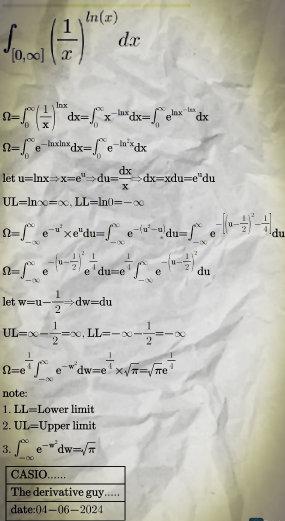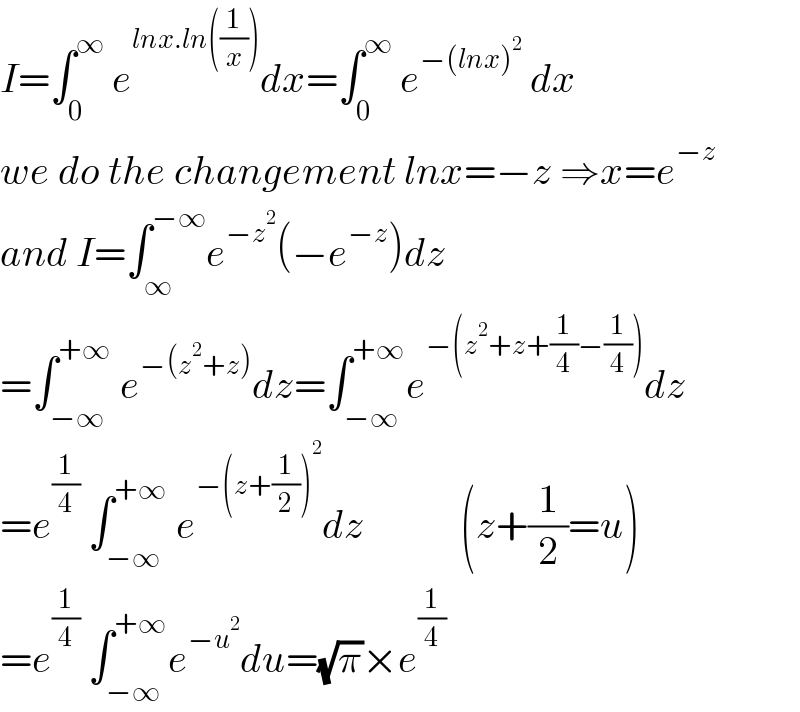
Question Number 208083 by nachosam last updated on 04/Jun/24
![∫_([0,∞]) ((1/x))^(ln(x)) dx](Q208083.png)
$$\int_{\left[\mathrm{0},\infty\right]} \left(\frac{\mathrm{1}}{{x}}\right)^{{ln}\left({x}\right)} {dx} \\ $$$$ \\ $$
Answered by Saiki last updated on 04/Jun/24

Answered by mathzup last updated on 05/Jun/24

$${I}=\int_{\mathrm{0}} ^{\infty} \:{e}^{{lnx}.{ln}\left(\frac{\mathrm{1}}{{x}}\right)} {dx}=\int_{\mathrm{0}} ^{\infty} \:{e}^{−\left({lnx}\right)^{\mathrm{2}} } \:{dx} \\ $$$${we}\:{do}\:{the}\:{changement}\:{lnx}=−{z}\:\Rightarrow{x}={e}^{−{z}} \\ $$$${and}\:{I}=\int_{\infty} ^{−\infty} {e}^{−{z}^{\mathrm{2}} } \left(−{e}^{−{z}} \right){dz} \\ $$$$=\int_{−\infty} ^{+\infty} \:{e}^{−\left({z}^{\mathrm{2}} +{z}\right)} {dz}=\int_{−\infty} ^{+\infty} {e}^{−\left({z}^{\mathrm{2}} +{z}+\frac{\mathrm{1}}{\mathrm{4}}−\frac{\mathrm{1}}{\mathrm{4}}\right)} {dz} \\ $$$$={e}^{\frac{\mathrm{1}}{\mathrm{4}}} \:\int_{−\infty} ^{+\infty} \:{e}^{−\left({z}+\frac{\mathrm{1}}{\mathrm{2}}\right)^{\mathrm{2}} } {dz}\:\:\:\:\:\:\:\:\:\:\:\:\left({z}+\frac{\mathrm{1}}{\mathrm{2}}={u}\right) \\ $$$$={e}^{\frac{\mathrm{1}}{\mathrm{4}}} \:\int_{−\infty} ^{+\infty} {e}^{−{u}^{\mathrm{2}} } {du}=\sqrt{\pi}×{e}^{\frac{\mathrm{1}}{\mathrm{4}}} \\ $$
